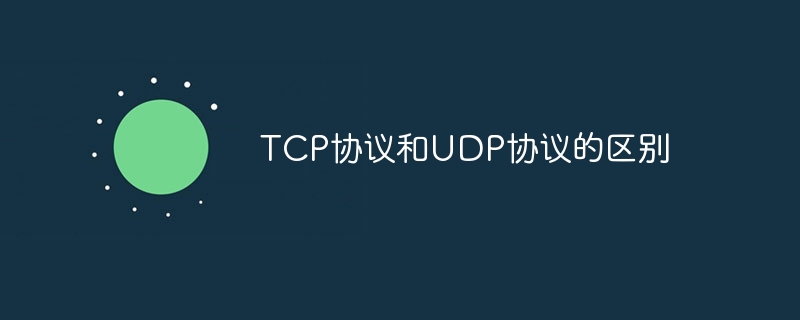
TCP and UDP are two network transport layer protocols. The main differences are: connection mode: TCP is connection-oriented and needs to establish a connection; UDP is connectionless and sends data directly. Reliability: TCP is reliable and ensures that the data is transmitted in complete order; UDP is unreliable and does not guarantee that the data is transmitted in order. Transmission method: TCP uses streaming transmission, and UDP uses message transmission. Congestion control: TCP has a congestion control mechanism, but UDP does not. Other differences: TCP provides flow control, but UDP does not; TCP is used for applications that require reliable transmission, and UDP is used for applications that require fast transmission.

The difference between TCP protocol and UDP protocol
TCP (Transmission Control Protocol) and UDP (User Datagram Protocol) ) are two different network transport layer protocols with different characteristics and uses.
Main difference:
Connectivity:
Reliability:
Transmission method:
Congestion control:
Other differences:
The above is the detailed content of The difference between TCP protocol and UDP protocol. For more information, please follow other related articles on the PHP Chinese website!
 How to remove the border of the text box
How to remove the border of the text box
 y460 graphics card switching
y460 graphics card switching
 How to increase fans of Douyin quickly and effectively
How to increase fans of Douyin quickly and effectively
 How to change the font color in dreamweaver
How to change the font color in dreamweaver
 Introduction to the plug-ins required for vscode to run java
Introduction to the plug-ins required for vscode to run java
 The most prominent features of computer networks
The most prominent features of computer networks
 What is the difference between original screen and assembled screen?
What is the difference between original screen and assembled screen?
 Dogecoin price today
Dogecoin price today




